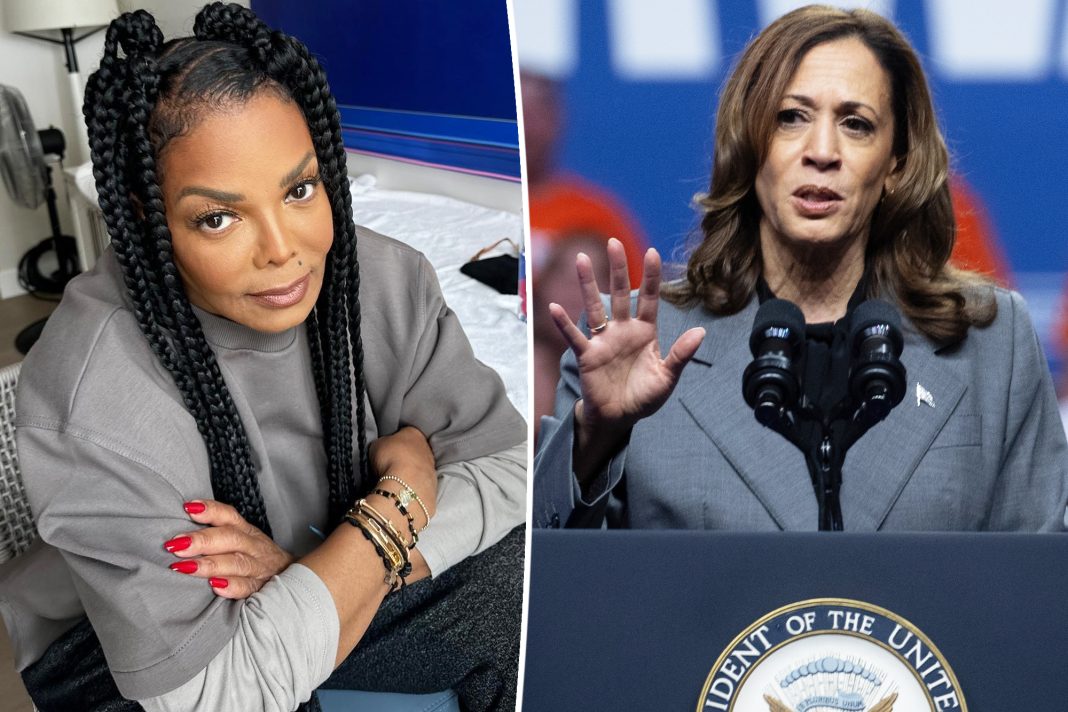In a recent interview, music icon Janet Jackson sparked a wave of controversy after questioning Vice President Kamala Harris’s racial identity. The discussion, which appeared in a publication on Saturday, has ignited fervent debates about race, identity, and the consequences of public figures making uninformed assertions.
During the interview, the 58-year-old singer stated, “She’s not black. That’s what I heard. That she’s Indian,” and further commented on Harris’s lineage by suggesting, “Her father’s white. That’s what I was told.” Such remarks, steeped in misinformation, have drawn significant backlash from fans and commentators alike. Critics quickly took to social media platforms to express their dismay, with one user labeling Jackson as “irrelevant” and a “leech,” a sentiment echoed by others who called out the singer for perpetuating harmful stereotypes.
The context behind these comments is critical. Vice President Kamala Harris is of Jamaican and Indian descent, a fact that underscores the complexity of racial identity in contemporary America. Her heritage reflects a rich tapestry of cultures, yet Jackson’s statements appear to simplify and misrepresent this identity, triggering a wave of disappointment from fans who have long admired her.
What makes this incident particularly poignant is the historical backdrop of race and identity within the Jackson family itself. Janet’s late brother, Michael Jackson, faced immense scrutiny regarding his own racial identity, especially during the 1990s when his skin tone changed dramatically—something he attributed to vitiligo, a condition known for causing patches of skin to lose pigment. This history adds a layer of irony to Janet’s comments, as many users pointed out the inconsistency in her understanding of racial identity, given the family’s own struggles with public perception.
One user aptly summarized this irony, tweeting, “Janet, you know better than to believe that nonsense… especially after all the race controversies Michael went through.” The sentiment reflects a broader concern: how public figures can influence discourse on race, often without fully understanding the implications of their words. As Dr. Robert Smith, a sociologist specializing in race relations, notes, “Public figures have a responsibility to engage thoughtfully with issues of identity. Misstatements can perpetuate stereotypes and misinformation.”
The controversy surrounding Jackson’s comments also draws parallels to remarks made by former President Donald Trump, who, during a conference for Black journalists, questioned Harris’s racial identity, suggesting she was of Indian heritage until she decided to “turn black.” Trump’s comments received widespread condemnation and highlighted the fragility of racial narratives in political discourse. The overlap in Jackson’s and Trump’s statements raises critical questions about the understanding of racial identity in America, particularly in a climate where identity politics are increasingly contentious.
As the conversation continues, it’s essential for public figures to approach discussions about race with care and nuance. Janet Jackson has long been a celebrated artist, admired not only for her music but also for her contributions to discussions about race and gender. However, this latest incident serves as a stark reminder of the power of words and the importance of informed dialogue.
In the wake of the backlash, many fans are left wondering if Janet Jackson will address the fallout from her comments. As of now, there has been no official response from her representatives. The situation serves not only as a cautionary tale but also as an invitation for deeper conversations about race, identity, and the ways we engage with these complex topics in society. In an era where representation matters, the stakes are high, and the responsibility is shared by all who occupy the public stage.

